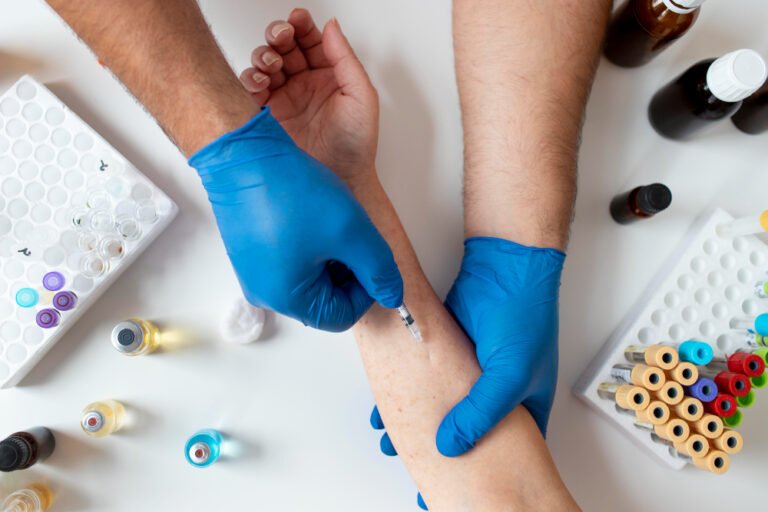Taking Action to End the Shame of Erectile Dysfunction
Erectile dysfunction (ED) is a common condition affecting millions of men worldwide. Despite its prevalence, ED remains shrouded in stigma and shame, preventing many from seeking the help they need. This article delves into the steps necessary to combat this stigma, emphasizing the importance of education, open dialogue, medical intervention, and psychological support.
Understanding Erectile Dysfunction
Erectile dysfunction is defined as the inability to achieve or maintain an erection sufficient for satisfactory sexual performance. This condition can result from a variety of causes, including physical factors like cardiovascular disease, diabetes, and obesity, as well as psychological factors such as stress, anxiety, and depression. Recognizing that ED is a medical condition, not a personal failure, is the first step toward destigmatizing it. By understanding that ED can affect men of all ages and backgrounds, society can begin to view it through a more compassionate and informed lens.
The Impact of Stigma
The stigma surrounding ED often leads to feelings of shame, embarrassment, and inadequacy. This can prevent men from seeking medical advice and treatment, exacerbating the problem. The societal pressure to perform sexually can make men feel isolated and reluctant to discuss their condition with partners or healthcare providers. Breaking the cycle of shame starts with changing the narrative around ED, encouraging open discussions, and promoting a more supportive environment.
Promoting Education and Awareness
Education is a powerful tool in combating the stigma of ED. Comprehensive sex education that includes information about common sexual health issues like ED can help normalize the condition. Public health campaigns can also play a crucial role by spreading awareness and providing accurate information. When people understand that ED is a common and treatable condition, it becomes easier to talk about and address.
Healthcare providers have a significant role to play in this educational effort. They should proactively discuss sexual health with their patients, making it clear that ED is a medical issue that can be treated. By normalizing these conversations, healthcare providers can help reduce the shame and encourage more men to seek help.
Encouraging Open Dialogue
Open dialogue is essential in breaking down the barriers of shame associated with ED. Men should feel comfortable discussing their experiences and concerns with trusted individuals, whether that be friends, family members, or healthcare professionals. Creating a supportive environment where men can talk openly about their sexual health without fear of judgment is crucial.
Partners also have a vital role in this dialogue. Understanding and support from a partner can significantly reduce the emotional burden of ED. Couples should strive to communicate openly about their sexual health, exploring together the available treatment options and supporting each other through the process.
Medical Interventions
There are various effective treatments for ED, ranging from medications like phosphodiesterase type 5 inhibitors (e.g., Viagra, Cialis) to lifestyle changes such as improved diet and exercise. In some cases, psychological therapies can also be beneficial, particularly when ED is linked to mental health issues.
Seeking medical intervention should be seen as a positive and proactive step. Men should be encouraged to consult with healthcare professionals who can diagnose the underlying cause of ED and recommend appropriate treatment. The more men see seeking help as a sign of strength rather than weakness, the easier it will be to combat the associated stigma.
Psychological Support
The psychological impact of ED can be profound, leading to issues like low self-esteem, anxiety, and depression. Psychological support, whether through therapy or support groups, can help men address these feelings. Cognitive-behavioral therapy (CBT), for example, has been shown to be effective in treating the psychological aspects of ED.
Support groups offer a space for men to share their experiences and learn from others who are facing similar challenges. These groups can provide both emotional support and practical advice, making it easier for men to cope with their condition.
Changing Societal Attitudes
Changing societal attitudes towards ED requires a collective effort. Media and popular culture often perpetuate myths and unrealistic expectations about male sexuality, which can contribute to the stigma of ED. By promoting more realistic and inclusive portrayals of male sexual health, society can begin to break down these harmful stereotypes.
Celebrities and public figures who speak openly about their experiences with ED can also have a significant impact. Their openness can inspire others to do the same, creating a ripple effect that helps to normalize the conversation around ED.
The Role of Partners
Partners play a crucial role in supporting men with ED. A compassionate and understanding partner can help reduce the emotional burden and encourage men to seek treatment. Open communication between partners is essential, as it allows both individuals to express their feelings and work together to find solutions.
Partners can also support lifestyle changes that may improve ED, such as encouraging healthier eating habits, regular exercise, and stress reduction techniques. By taking an active role in their partner’s health, they can help create a supportive environment that fosters improvement and well-being.
Addressing Misconceptions
There are many misconceptions about ED that contribute to the stigma. One common misconception is that ED only affects older men, when in fact, it can affect men of all ages. Another misconception is that ED is always a result of psychological issues, ignoring the significant role that physical health plays.
By addressing these misconceptions through education and open dialogue, we can help dispel the myths that surround ED. Accurate information can empower men to seek the help they need without feeling ashamed or embarrassed.
Encouraging Preventive Measures
Preventive measures can play a key role in reducing the incidence of ED. Promoting a healthy lifestyle that includes regular exercise, a balanced diet, and avoiding smoking and excessive alcohol consumption can help maintain good sexual health. Regular medical check-ups can also help identify and address any underlying health issues that may contribute to ED.
Men should be encouraged to take a proactive approach to their sexual health, recognizing that preventive measures can make a significant difference. By focusing on overall well-being, men can reduce their risk of developing ED and improve their quality of life.
Conclusion
Erectile dysfunction is a common and treatable condition that should not be shrouded in shame. By promoting education, encouraging open dialogue, supporting medical interventions, and providing psychological support, we can combat the stigma associated with ED. Changing societal attitudes and addressing misconceptions are also crucial steps in this process. Together, we can create a more compassionate and understanding environment that empowers men to seek the help they need and live healthier, happier lives.






